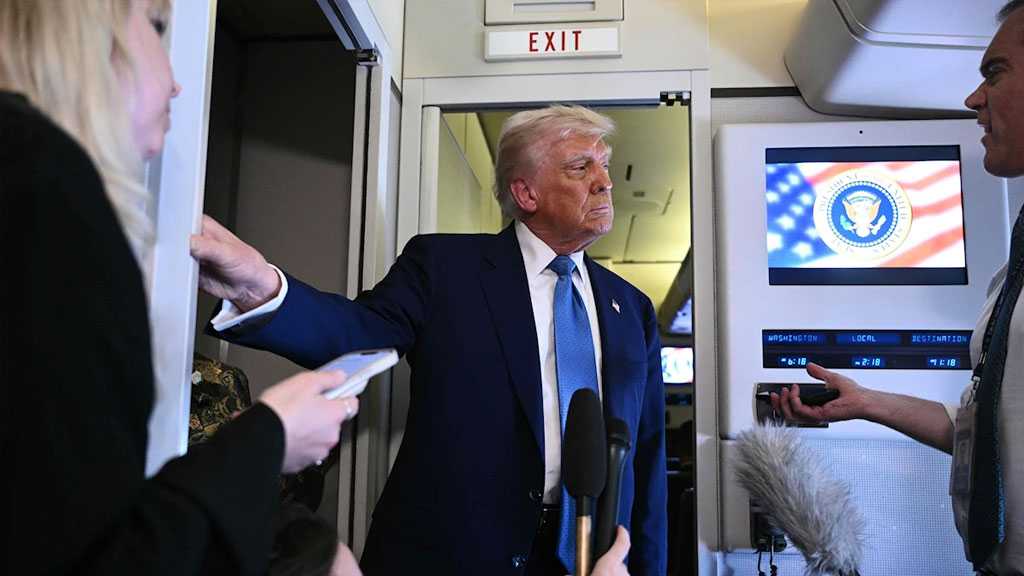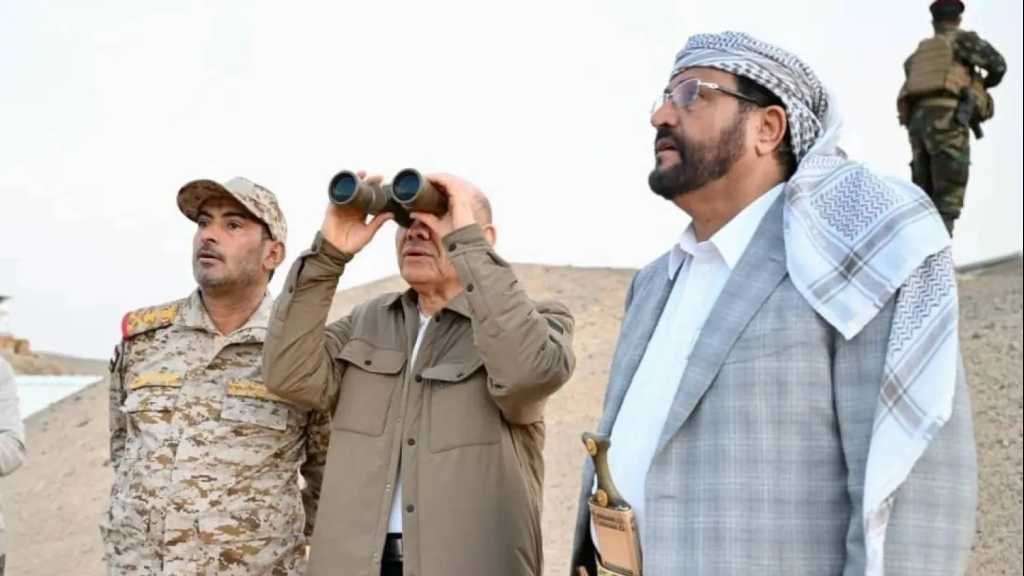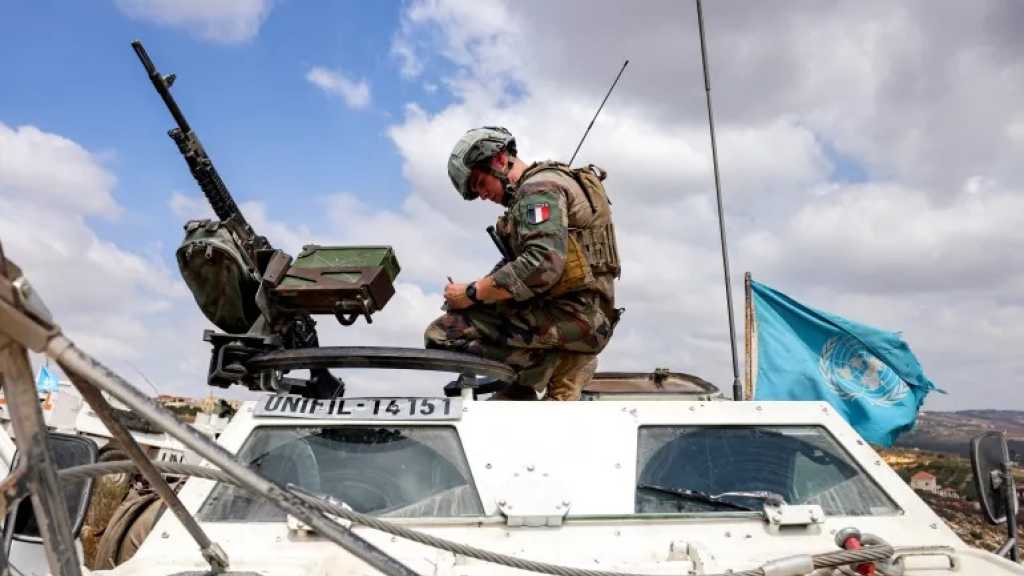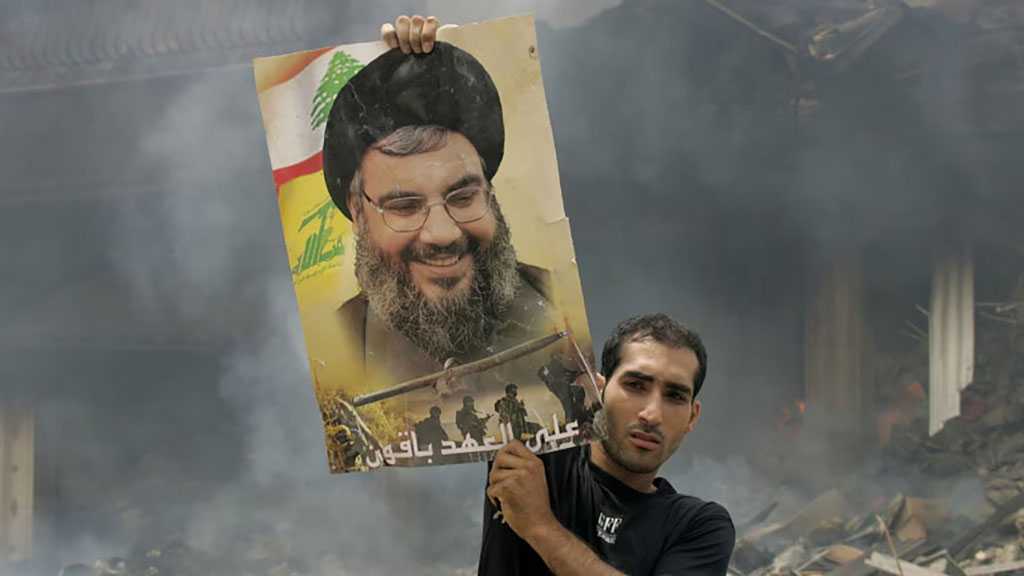Trump Closes the Chapter on Failed Policies: Time to Try Something New in Syria

Translated by Al-Ahed News, Al-Akhbar Newspaper
Statements made by US President Donald Trump during his visit to the Middle East—most notably his decision to lift sanctions on Syria—indicate that he has concluded the US can no longer afford to pursue regime-change adventures, particularly in the Middle East. This realization pushed him to accept the necessity of lifting sanctions on Syria and cooperating with Ahmed Al-Sharaa’s leadership. However, this shift has sparked concerns among many observers, both within the region and beyond, about the nature of Sharia’s future rule—especially as the US decision is widely perceived as a "lifeline" for him.
According to a report published in Foreign Policy magazine, this week's meeting between "an American president who does not care about democracy" and a former anti-American jihadis—who is increasingly convinced that democracy is unlikely to take root in his war-torn country—was more than just a striking spectacle. It symbolized a “big farewell” to an entire generation of failed US policy in the Middle East.
Even before shaking hands with Al-Sharaa—"the Islamic Syrian leader who once spent five years in prison because of the United States"—Trump had already made this position clear in his speech in Riyadh. In that speech, he praised his two new authoritarian allies, Saudi Crown Prince Mohammed bin Salman and Turkish President Recep Tayyip Erdogan, according to the magazine. Indeed, Trump stated that he was consciously leaving behind the "failures" of Washington's previous policies.
However, many observers—including those who previously promoted the idea that Trump should seize the fall of Bashar al-Assad's regime to build ties with the new government and "give it a chance"—are now watching with "extreme caution" what will become of Sharia’s rule, especially after the bloody events that occurred in various parts of Syria in the past.
In this context, the magazine quoted Charles Dunn, a former US diplomat in the region, as saying that "Al-Sharaa has a real chance," but that "the pressures he may face at home, including the need to impose order, and those from abroad, especially from his supporters in Turkey and the Gulf, will complicate his path."
Dunn added, “Turkey and the Gulf states may differ somewhat on the potential Islamist leanings of a Sharia government, but both sides are unlikely to have any issue with authoritarian rule and the suppression of civil and political rights as necessary.” Other experts believe that the most likely model for Sharia’s rule would resemble that of his rebel group, Hayat Tahrir al-Sham, in the northwestern city of Idlib, where it "led a brutal crackdown on opposition."
The Trump–Al-Sharaa meeting appeared to be a symbolic “farewell” to a whole era of failed US policy in the region.
Joshua Landis, president of the Center for Middle Eastern Studies at the University of Oklahoma, sees Trump's lifting of sanctions as "a major victory for Sharia," noting that without such a move, his government "would likely have failed" and now has a chance to "revive Syria's paralyzed economy." Landis also described the latest US move as "good news for Syrians, most of whom live in extreme poverty." However, he stressed that lifting the sanctions, which will also “strengthen Al-Sharaa’s government and authority,” means that Syria will now be governed by “an authoritarian and extremist Islamic regime,” especially since “the constitution places all powers in the hands of the president, who can appoint all parliament members directly or indirectly, as well as judges in the Supreme Court, in addition to commanding the army and security forces.”
Still, the report acknowledged that Trump had "many other options," according to the same source, which added that the US president was likely right "to criticize the so-called 'nation builders' and neoconservatives in previous US governments," who "spent trillions of dollars failing to develop Kabul, Baghdad, and many other cities." This view has led many Middle East experts to argue that, "for humanitarian and strategic reasons, Trump was right to reach out to Sharia, whose future leadership will ultimately remain a work in progress."
Shock in Washington and “Tel Aviv”
Shortly after leaving Abu Dhabi, Trump asserted, from aboard Air Force One, that he "did not consult with 'Israel'" about the decision to lift sanctions on Syria, saying, "I didn't ask them about it. I thought this was the right thing to do, and I got a lot of credit for doing it. We want Syria to succeed." But "Israel" is not the only one apparently surprised by Trump's decision: CBS quoted informed sources as saying that within the Treasury Department, which is responsible for managing and implementing sanctions policy, Trump's announcement was met with "shock" among senior officials—especially since it lacked "details," including which measures would be rolled back and at what pace—causing officials to "scramble to try to understand what the decision means."
Currently, discussions are underway within the Treasury Department to determine the speed and extent to which decades-old sanctions that restrict economic activity inside Syria and its dealings with other countries can be lifted. Aaron Zelin, a senior fellow at the Washington Institute for Near East Policy, said it would be particularly difficult to resolve the Caesar sanctions, since they were congressionally approved, meaning the administration would now have to persuade Congress to ease restrictions under them.
While the US decision is expected to have significant positive impacts on the Syrian people—who were most affected by the sanctions—the key question remains: how long will it take before Syria actually feels the effects of the decision? Benjamin Fiev, a senior research analyst at Karam Shaar Consulting Ltd., wrote on X [formerly Twitter] that officially lifting sanctions on Syria “is not as easy as Trump announcing it.” He explained that the process would be “lengthy,” and added: “We can only hope they move as fast as possible,” emphasizing the need for “concrete measures” to follow the announcement.




